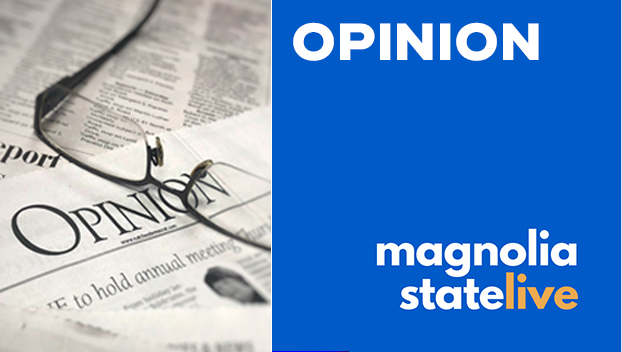Opinion: Voters should look out windshield more when vetting candidates than rearview mirror
Published 9:23 am Monday, April 29, 2019
This latest journalistic fad of digging into old high school and college yearbooks of politicians and others in the public eye will eventually pass.
Until it does, though, this game of gotcha is only going to get sillier.
Andy Taggart, a Republican candidate for attorney general, is the latest Mississippi politician to be put to the yearbook litmus test.
This past week, a story surfaced that Taggart, while he was serving as student body president at Mississippi College in 1979, appeared in a skit in which at least one of the characters — not Taggart — wore blackface. The inference of the story was that by participating in such a skit, Taggart saw nothing wrong at the time of trying to get laughs by impersonating black people in a denigrating or patronizing way.
Who knows what Taggart was thinking 40 years ago? People in their late teens and early 20s are not known for being particularly introspective. He says he doesn’t remember the skit, but that he is embarrassed by the yearbook photo and regrets being part of the comic routine.
That should be enough said. Unless anyone has evidence that Taggart, as an attorney or in his public life — including having served three Republican governors in various staff or advisory roles — has acted in a racist manner, then this supposed controversy is trivial and wasn’t worth the play it got.
Regrettably, the story has distracted from a much more contemporary racial question on which Taggart has bravely tried to lead.
As he did a year and a half ago, when he urged the state Republicans to get behind a movement to try to change the state’s polarizing flag, Taggart said he would continue to champion a new flag if he is elected attorney general.
It was a bold stand in 2017. It’s even bolder as a statewide Republican candidate.
Although polls reportedly show support for the state’s current banner, with its controversial Confederate emblem, is gradually weakening, a majority of Mississippians would most likely vote against a change, as they did in 2001 by a nearly 2-to-1 margin.
Support for the flag is strongest among whites and Republicans — those who will largely decide whether Taggart advances to the general election.
It would have been politically safer for him to downplay the flag issue until he saw whether he got by his two GOP opponents. But Taggart deserves lots of credit for trying to steer public opinion, rather than to be just steered by it.
He’s also trying to use the pulpit that his political life has provided to educate Mississippians about drug addiction and how policymakers and law enforcement should respond to it.
Taggart has the life experience to talk authoritatively about this issue, bearing the scars of losing a son seven years ago to a drug-driven suicide.
Taggart is part of a new sensibility in the drug war — and in corrections policy in general — that says this country needs to better distinguish between the victims of the drug epidemic and the perpetrators of it.
What gets tricky is how broadly each group is defined.
It’s not hard convincing people that addicts such as Taggart’s son, whose only crime was possessing and using illicit drugs, are victims. And there’s nearly universal agreement that those who run illegal drug-trafficking operations, and those who deceive about the dangers of the legal painkillers they manufacture or overprescribe, are predators.
It’s a lot tougher to decide in which category fall the small-time criminals who break into houses and cars or sell small amounts of drugs to pay for their own fix.
Are they predators because they take what doesn’t belong to them or sell drugs to other current or potential addicts? Or are they victims who resort to the only ways they know to keep the drug supply coming?
That’s a discussion that Taggart’s candidacy should foster, and it’s a whole lot more important than whether he was in a college skit where somebody used blackface.
Taggart was talking about the state flag the other day when he encouraged Mississippians who are stuck on tradition to adjust their focus.
“It’s not a coincidence that a windshield is way bigger than a rearview mirror,” he said. “It’s because we ought to be spending a lot more time looking forward than looking back.”
The same concept should be applied to how we view Taggart and others seeking political office. We should worry little about whether they embarrassed themselves in the distant past and a lot about whether they’ll embarrass us in the near future.
This editorial was originally published in the McComb Enterprise-Journal newspaper.






